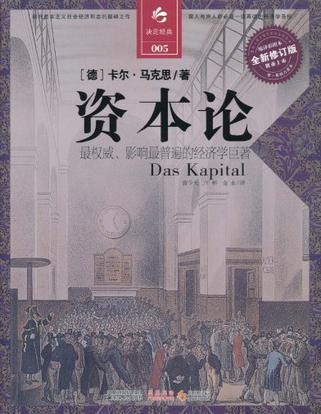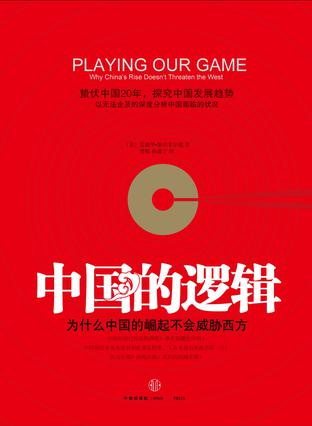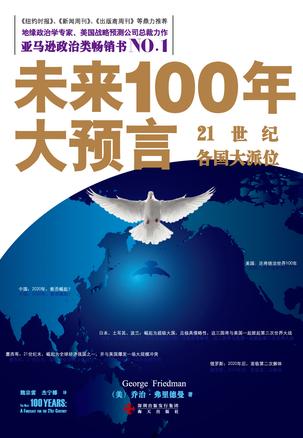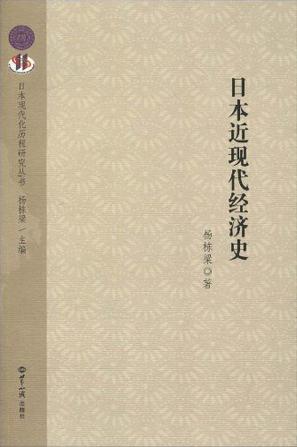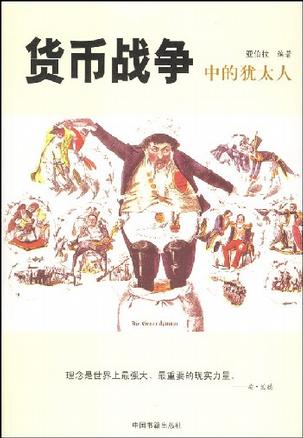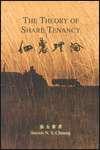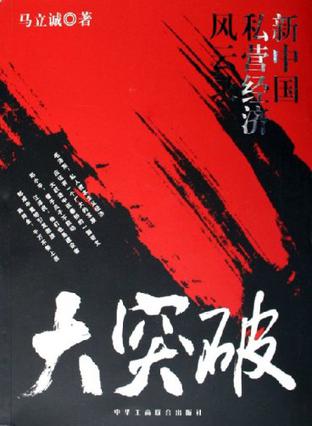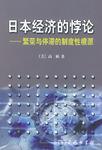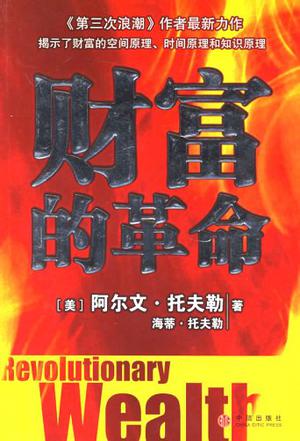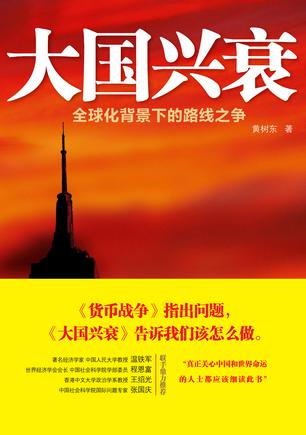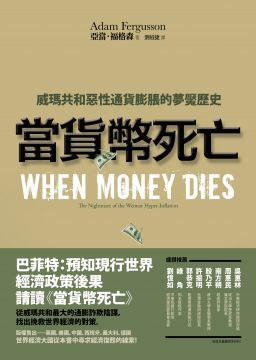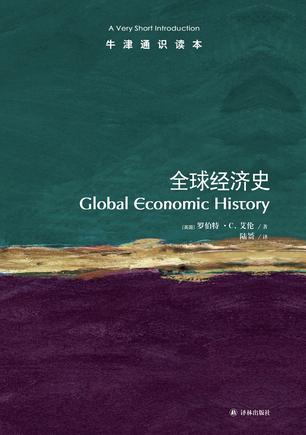欢迎来到相识电子书!
标签:经济
-
资本论
《决定经典005·资本论(全新修订版)》是西方哲学大体系缔造者中的最后一个人——卡尔·马克思经济学说中最主要的著作,同时也是马克思主义的重要百科全书,更是研究资本主义社会经济形态的巅峰之作。 《资本论》创造了一个崭新的思想体系。其研究世界的方法源于德国哲学、早期社会主义理论和政治经济学。马克思像黑格尔一样,相信能够用一个辩证法公式概括人类的进化历程。他认为,所有哲学家所做的一切都在于致力于解释世界,但他同时认为,问题的关键在于如何改变世界。他在黑格尔辩证法的基础之上,颠覆了传统的“形而上学”,建立了一个现实中得意实践的最大的思想体系,一个影响到地球50%以上人口的体系。 恩格斯说:“自地球上有资本家和工人以来,没有一本书像我们面前这本那样,对于劳动者具有如此重要的意义。资本和劳动的关系,是我们现代社会全部体系所赖以旋转的轴心。这种关系在这里第一次作了科学的说明,而这种说明之透彻和精辟,只有一个德国人才能做到——这个人就是马克思,他攀登到最高点,将现代社会关系的全部领域一览无遗。” -
央企真相
“真相”本是个中性词。但在中国现实的语境下,“真相”已渐渐成为爆料的代名词,当下报网书刊中的“真相”往往偏向负面,和针砭时弊、内幕揭密划上等号。其实,“真相”一词在《辞海》中的解释是:“指事物的本来面目或真实情况”。可见,“真相”确实是个中性词汇,本身并无褒贬。联系到本书的主角——央企,由于央企信息披露机制的不健全,由于央企悠长复杂的身世,由于央企庞大密集的结构,还由于其他种种原因,造成信息的不对称,人们得到央企的信息往往“碎片化”、“段落化”,对央企的认识和评说或雾里看花或盲人摸象,难以全面、完整、客观地看待央企,不了解和误解误读自然难以避免。鉴于此,本书选择“央企真相”做书名,取“真相”原意,意即力求还原央企的真实面貌和真实形象。这是一次尝试,更是希望。这个世界不该只有论战,只有纷争,而应多一些宽容,多一些沟通,多一些换位思考。本书便是在公众和央企之间搭建一座沟通桥梁的一次尝试。衷心期盼大家共同努力,在各方面认识的沟壑上多架起座座桥梁,变鸿沟为通途,让我们的社会更加和谐。 -
中国的逻辑
对于中国发展模式,如果你想颠覆西方传统观点,这本书你一定要读。如果你想获得对中国模式的突破性看法,这本书你也一定要读。 中国读者一般很难接触到西方学者对中国发展模式的真实评述,而不用说是一位深入研究中国20多年的学者对中国发展思路和模式所做的精彩评述和推论。《中国的逻辑》一书将为你展现一个全新的透视中国模式的视角。从这本书中,你可以阅读到有别于中国学者的、独具西方特色的中国发展经。 -
未来100年大预言
耸人听闻但让人警觉的战略大预言 2020年:虎图腾下的中国能否崛起? 2050年:美土波日列强打响第三次世界大战 2080年:太空电站向地球供电 2100年:墨西哥挑战美国强权地位 别以为你在看科幻小说,这些惊人之语皆来自乔治•弗里德曼这本让人期待已久的新书。这位预言大师把目光投向遥远的未来,为21世纪即将发生的巨变勾画出一幅清晰的图景和可读性极强的百年语言。未来战争在哪打、为何打、如何打,哪些国家将获得和失去经济和政治权力,地缘政治、科技、人口、文化以及军事等方面的主要趋势如何改变我们在新世纪的生活方式,只有他能说得清楚。 本书绝非迎合猎奇心理的娱乐书籍。弗里德曼以多年研究的报告成果,绵延百年的历史纵深和宽广的地缘战略视野,在我们面前徐徐展开未来100年让人尖叫迭起的画卷。 预言有风险,相信需谨慎。 战略预测公司(STRATFOR) 背景和成功案例 乔治•弗里德曼以犹太人天生的灵敏嗅觉,一手创立了私营情报预测机构“战略预测公司”(简称“战预”),总部设在得克萨斯州首府奥斯汀,是全球首屈一指的未来趋势、情报资讯分析机构,为各国政府、《财富》500 强提供建议和经营环境解析,提出全球大战略思考架构下的行动方向,是美国唯一一所可以公开合法出售情报分析成果的私营机构。“战预”在全球各地与分析家、学界、智库和各领域顶尖人士合作,将搜罗的情报信息严格筛选整理,为客户提供现场情报、深度分析和战略预测三大重点产品。因此,“战预”公司在美国又被称为“影子中情局”或“民间中情局”。在中情局因情报不准广受指责诟病之际,“战预”反而名声鹊起。 1996 年“战预”公司刚刚成立即成功预测了亚洲金融危机,还是唯一现场解析1999 年北约空袭科索沃战况和未来冲击的私营机构,而所用的方式竟是从战场给CNN 发电子邮件,不花一分钱就办了中情局花大价钱也办不到的事,经由《时代》杂志披露后确立了该机构的权威地位。“9•11 ”事件后,该公司更首度对大众定期有偿提供信息,预测基地组织及布什政府的策略方向。该智库也曾经准确预测巴基斯坦、阿富汗紧张局势升级的关键因素,破解拉美毒枭组织的经营结构,并对美国总统奥巴马新政面临的挑战提出精辟建议。 国际畅销书《未来100 年大预言》全球震撼登场 -
日本近现代经济史
《日本近现代经济史》依据“整体性、系统性和学术性”的写作三原则,在“横向”把握国际因素和国内非经济因素对经济发展影响的基础上,从资源禀赋、条件约束,制度安排、政策运作,路径选择,生产要素配置,经济周期变动,阶级阶层状态、对外经贸关系等不同层面入手,对不同时期和阶段的经济现代化进程及其特点进行了宏观考察和徽观分析,在若干重要理论问题上展示了独自的思考和发现。 日本的经济现代化展承了一种后发国实现经济赶超的模式,对于中国来说,其经验和教训绝非与已无关的“旁物”,而是一面镜子,值得借鉴参考。 -
货币战争中的犹太人
本书从犹太人和金融的历史渊源写起,既解秘了世界首富罗思柴尔德家族的发迹之谜,又揭秘了西特勒反犹的经济原因和美联储究竟是不是一家私有的中央银行的真正内幕,同时还破译了通货膨胀背后的货币问题,对“货币战争”这一热门话题进行了历史纠错和理论升华。 -
Privatizing China
Much is written about the various efforts aimed at reforming China’s state-owned enterprises. But in all this literature the Chinese government’s determined effort to use the equity capital markets as a tool of enterprise reform has been virtually ignored. The fact is that during the past decade this has been, and will continue to be, the principal thrust with regard to the reform of state-owned enterprises. On-again, off-again, noises about bankruptcy, M&A solutions and asset management companies are only sideshows in the process. Carl E. Walter is a Managing Director of JP Morgan and Chief Operating Officer of its China businesses. Prior to joining JP Morgan in 2001, Mr. Walter was a Managing Director and member of the Management Committee of China International Capital Corporation. He was Chief Representative in Beijing for Credit Suisse First Boston from 1993-8. During his decade in China, Mr. Walter has participated in a number of pathbreaking international and domestic share listings and debt issues for Chinese companies, banks and the Ministry of Finance. He holds a PhD from Stanford University and a graduate certificate from Beijing University. Fraser Howie is an independent financial analyst located in Beijing. Over the past ten years he has worked in Hong Kong trading equity derivatives at Bankers Trust and Morgan Stanley. After moving to China in 1998 he worked in the Sales and Trading Department of China International Capital Corporation then with a domestic retail financial services company and most recently with China M&A Management Company. -
融资美国梦
作者生动地讲述了18世纪以降的大众消费生活史,对汽车、冰箱等现代耐用消费品如何借助消费信贷融入大众生活更有极为详尽的描写。同时,作者又以大量史实和有力论证,向“消费信贷侵蚀了传统价值”这一观念提出了挑战。消费信贷的真正作用是让普罗大众也有能力购买昂贵的耐用消费品,并使负债成为一种生活方式。在它的催化之下,克制与挥霍这一对矛盾达成了令人惊异的平衡,并成为当代消费文化的最重要主题。 -
房间里最精明的人
《房间里最精明的人:安然破产案始末》读来恢宏大气、酣畅淋漓,既有对重大事件的详尽剖析,又有生动真实的细节支撑,对安然从飞速崛起到彻底衰败的全过程进行了客观深透的报道,其文字叙述不仅散发着新闻记者中立精准的气质和金融分析师严谨睿智的个性,同时还间或隐现出一种身为美国人对此一事件特有的复杂情绪。2001年年末,位于休斯敦的能源巨头安然(Enron)在其如日中天之时突然崩溃,从此引发美国公司接连爆出丑闻的多米诺效应,也结束了华尔街历史上最长的一个大牛市。曾经以“世界上最伟大的公司”名震天下的安然,现在却成了记录美国公司所犯全部错误的标签。安然的破产,不仅仅标志着一家公司的灭亡,而且是一个时代的终结。关于安然成败的经验之书,至今已有一打以上,但仍未有一部足够翔实、足够权威的作品出现。直至现在,美国最权威的《财富》杂志两位高级撰稿人交出了“作业”:作为当年最早公开质疑该公司交易的分析师和记者,《房间里最精明的人:安然破产案始末》的两位作者历时 16个月深入调查、详细访问终于完成了此书。正如书中所言:“不管你对安然了解多少,《房间里最精明的人:安然破产案始末》所揭露的事实都会让你感到震惊”。 -
The World Is Flat
这是一本: 对世界经济及商业最富洞察力和预见性的巨作! 被比尔·盖茨、等全球商业领袖顶礼膜拜的里程碑作品 唯一一位3次获得普利策奖的财经作家 连续64周销量位居亚马逊书店十大畅销书之列 全球销售近1000万册 诺贝尔经济学奖得主斯蒂格利茨推荐 IBM大中华区总裁兼首席执行官周伟焜强烈推荐 IBM全体员工人手一册 《金融时报》与高盛2005年度最佳商业图书 When scholars write the history of the world twenty years from now, and they come to the chapter Y2K to March 2004, what will they say was the most crucial development? The attacks on the World Trade Center on 9/11 and the Iraq war? Or the convergence of technology and events that allowed India, China, and so many other countries to become part of the global supply chain for services and manufacturing, creating an explosion of wealth in the middle classes of the world's two biggest nations, giving them a huge new stake in the success of globalization? And with this flattening of the globe, which requires us to run faster in order to stay in place, has the world gotten too small and too fast for human beings and their political systems to adjust in a stable manner? In this brilliant new book, the award-winning New York Times columnist Thomas Friedman demystifies the brave new world for readers, allowing them to make sense of the often bewildering global scene unfolding before their eyes. With his inimitable ability to translate complex foreign policy and economic issues, Friedman explains how the flattening of the world happened at the dawn of the twenty-first century; what it means to countries, companies, communities, and individuals; and how governments and societies can, and must, adapt. The World Is Flat is the timely and essential update on globalization, its successes and discontents, powerfully illuminated by one of our most respected journalists. : Thomas L. Friedman is not so much a futurist, which he is sometimes called, as a presentist. His aim in The World Is Flat, as in his earlier, influential Lexus and the Olive Tree, is not to give you a speculative preview of the wonders that are sure to come in your lifetime, but rather to get you caught up on the wonders that are already here. The world isn't going to be flat, it is flat, which gives Friedman's breathless narrative much of its urgency, and which also saves it from the Epcot-style polyester sheen that futurists--the optimistic ones at least--are inevitably prey to. What Friedman means by "flat" is "connected": the lowering of trade and political barriers and the exponential technical advances of the digital revolution that have made it possible to do business, or almost anything else, instantaneously with billions of other people across the planet. This in itself should not be news to anyone. But the news that Friedman has to deliver is that just when we stopped paying attention to these developments--when the dot-com bust turned interest away from the business and technology pages and when 9/11 and the Iraq War turned all eyes toward the Middle East--is when they actually began to accelerate. Globalization 3.0, as he calls it, is driven not by major corporations or giant trade organizations like the World Bank, but by individuals: desktop freelancers and innovative startups all over the world (but especially in India and China) who can compete--and win--not just for low-wage manufacturing and information labor but, increasingly, for the highest-end research and design work as well. (He doesn't forget the "mutant supply chains" like Al-Qaeda that let the small act big in more destructive ways.) Friedman has embraced this flat world in his own work, continuing to report on his story after his book's release and releasing an unprecedented hardcover update of the book a year later with 100 pages of revised and expanded material. What's changed in a year? Some of the sections that opened eyes in the first edition--on China and India, for example, and the global supply chain--are largely unaltered. Instead, Friedman has more to say about what he now calls "uploading," the direct-from-the-bottom creation of culture, knowledge, and innovation through blogging, podcasts, and open-source software. And in response to the pleas of many of his readers about how to survive the new flat world, he makes specific recommendations about the technical and creative training he thinks will be required to compete in the "New Middle" class. As before, Friedman tells his story with the catchy slogans and globe-hopping anecdotes that readers of his earlier books and his New York Times columns know well, and he holds to a stern sort of optimism. He wants to tell you how exciting this new world is, but he also wants you to know you're going to be trampled if you don't keep up with it. A year later, one can sense his rising impatience that our popular culture, and our political leaders, are not helping us keep pace. --Tom Nissley Before 9/11, New York Times columnist Friedman was best known as the author of The Lexus and the Olive Tree, one of the major popular accounts of globalization and its discontents. Having devoted most of the last four years of his column to the latter as embodied by the Middle East, Friedman picks up where he left off, saving al-Qaeda et al. for the close. For Friedman, cheap, ubiquitous telecommunications have finally obliterated all impediments to international competition, and the dawning "flat world" is a jungle pitting "lions" and "gazelles," where "economic stability is not going to be a feature" and "the weak will fall farther behind." Rugged, adaptable entrepreneurs, by contrast, will be empowered. The service sector (telemarketing, accounting, computer programming, engineering and scientific research, etc.), will be further outsourced to the English-spoken abroad; manufacturing, meanwhile, will continue to be off-shored to China. As anyone who reads his column knows, Friedman agrees with the transnational business executives who are his main sources that these developments are desirable and unstoppable, and that American workers should be preparing to "create value through leadership" and "sell personality." This is all familiar stuff by now, but the last 100 pages on the economic and political roots of global Islamism are filled with the kind of close reporting and intimate yet accessible analysis that have been hard to come by. Add in Friedman's winning first-person interjections and masterful use of strategic wonksterisms, and this book should end up on the front seats of quite a few Lexuses and SUVs of all stripes. Although it may be catchy, the title of New York Times columnist Friedman's latest book needs explaining. "Flat" here means "level," as in the level playing field on which virtually any nation can now compete, thanks to the explosion of global telecommunications, including the Internet as well as the transfer of information from First World to Third--and back. There's also a leveling of hierarchies within organizations, thanks to the increasing democratization of information from sources such as the Web. Friedman cites 10 forces that have caused this "flattening," including the fall of the Berlin Wall ("We could not think globally about the world when the Berlin Wall was there," said one economist), the emergence of Netscape as an Internet platform, workflow software, open sourcing, outsourcing, the streamlining of the supply chain (witness Wal-Mart), the organization of information on the Internet (Google, Yahoo), and the ubiquity of powerful personal telecommunications devices. Friedman is very thorough at projecting the consequences of these changes, noting the benefits we all share from this hyper-globalization, while realistically addressing, for example, the challenges American workers will face in the coming decades from talented, highly motivated workforces in such countries as India and China. A little more humor might have offset the author's trademark earnestness; still, as he has with other global issues, Friedman brings coherence and a workable plan of action to the fundamental changes our world is experiencing. Alan Moores Adult/High School–This brilliantly paced, articulate, and accessible explanation of today's world is an ideal title for tech-savvy teens. Friedman's thesis is that connectedness by computer is leveling the playing field, giving individuals the ability to collaborate and compete in real time on a global scale. While the author is optimistic about the future, seeing progress in every field from architecture to zoology, he is aware that terrorists are also using computers to attack the very trends that make progress plausible and reasonable. This is a smart and essential read for those who will be expected to live and work in this new global environment –Alan Gropman, National Defense University, Washington, DC Distance has been annihilated. Your X rays are sent to India, your job to China. In a flat world the U.S. must seize every technological advantage and put the "oomph" we gave the moon shot into breaking our oil habit. (Although the writer suspects that he will be sent to the moon before "W." gets the message.) Narrator Oliver Wyman does a superb job. First he's the irrepressible American, then the Indian gentleman, and finally the Chinese whose English is formal but broken. The audiobook technology that enables us to take in so much information while caught in traffic or scrubbing a pan is precisely the sort of handhold Friedman would urge us all to grasp, and with both hands. B.H.C. Winner of AudioFile Earphones Award Friedman, nominally a liberal, has historically taken the middle path and supported laissez-faire capitalism, globalization, and the power of institutions like the International Monetary Fund. Ever optimistic about globalization, he pleases its proponents and disappoints its detractors in The World Is Flat. There’s no doubt that Friedman asks timely questions, even if he sometimes shirks definitive answers. Although he acknowledges terrorism’s global weight, he identifies an even more potent force shaping global economics and politics: the "triple convergence—of new players, on a new playing field, developing new processes … for horizontal collaboration," particularly in China and India. Friedman’s story comes alive as we meet the movers and shakers of Globalization 3.0, eavesdrop on Friedman’s interviews, and witness collaborations in progress. Friedman’s personal journey, if slightly padded, makes for entertaining and accessible reading. Yet critics, even those who support globalization, differed on Friedman’s thesis; India, for example, has not yet become the global superpower he describes; many scholars still describe the "flat world" as a nicer name for "cheap labor." Friedman also less effectively analyzes the effects of Globalization 3.0 than its players, and embraces technological determinism at the expense of thoroughly considering major political factors (like terrorist networks, which he’s previously compared to World War III). No matter your stance on the benefits or pitfalls of globalization, The World Is Flat is an important, thought-provoking book—even if Friedman’s answer to unresolved issues is, "Sort that out." Thomas L. Friedman has won the Pulitzer Prize three times for his work at The New York Times. He is the author of three best-selling books: From Beiruit to Jerusalem (FSG, 1989), winner of the National Book Award for nonfiction and still considered to be the definitive work on the Middle East, The Lexus and the Olive Tree: Understanding Globalization (FSG, 1999), and Longitudes and Attitudes: Exploring the World After September 11 (FSG, 2002). He lives in Bethesda, Maryland, with his family. 《世界是平的》中文版 精装版 《世界是平的》中文版 《世界是平的》中文版 平装版 -
大突破
私营经济的发展,也为国有企业改革创造了更好的条件。现在中国的私营企业普遍比较弱小,只能参与中小国有企业改革。随着私营企业进一步发展,它们将越来越有能力参与大型国有企业改革。中国的私营经济经历了艰难曲折,有了一定的发展,现在还处在初期阶段。目前的私营经济,还具有体制转轨时期的许多历史痕迹。 这本书用大量确凿的史实,记录了中国私营经济最近几十年兴衰、发展的历史,记录了围绕私营经济的理论的演变与突破,记录了中国共产党对私营经济政策的变化与发展,记录了私营经济对改革开放以来中国经济发展的重大贡献。 -
财富的革命
《财富的革命》是关于有形和无形财富的未来。这种革命性的财富形式在未来的数年中将重新设计我们的生活、我们的公司和整个世界。今天的财富革命不仅会给有创新精神的企业家带来无数的机会和新的生命轨迹,也会给社会、文化和教育等各界企业家带来无数的机遇和生命轨道。它会给世界范围内的脱贫运动带来无限生机。但是,在这条通往光明未来的路上却明示着一则警告:风险不仅规模在扩大,而且速度也在加剧。末来是为那些勇敢者准备的。中国的经济发展不可能不受干扰地以直线发展。中国不可能避免浪潮间的冲突。在末来的几十年中,中国将毫无疑问不止一次地发生衰退和复苏并存的现象,并连续不断地影响全球的经济。革命也打破了疆界。工业社会在家庭生活和工作生活之间确立了一个明确的界限。今天,对于那些在家里工作的数以百万计的人们来说.这个界限变得模糊了,就连“谁在为谁工作”这个概念也变得含糊不清了。如果我们能从第三次浪潮的经历中学到什么东西的话,那就是小型企业(正如硅谷所证明的那样)可以改变世界。但是,和所有小的、新的有机体一样,小型公司,尤其是技术刚起步的小公司需要一种友好的“注场”环境。 -
名利场
手稿引进 全球首发 纵览国际艺术品市场之诡谲的最佳指南 奇迹抑或泡沫?艺术品市场上不断飙升、令人惊骇的高价纪录,意味着艺术品的品质、时代的趣味,还是某种运作? 收藏抑或投机?与股票、黄金和钻石相比,艺术品作为投资品的表现如何? 2011年压倒美国而雄踞世界艺术品交易排行榜之首的中国艺术市场有何独特之处?为何只有在北京、上海和 香港,才能最为清楚地看到艺术品的价格是由投机、想象与操纵所决定? “在任何其他行业里会被称为内幕交易的事情,在艺术市场上不过是一次友好的谈话。”专注于艺术品市场三十余年,英国作家戈弗雷•巴克在本书中生动地讲述了在1850 年到21 世纪之间这个商业时代艺术品的故事,揭秘高端艺术品尤其是画作的交易中种种操纵的伎俩:艺术家如何与商人合作,抬高艺术品的价格;商人如何精心设计,在短时间内转卖画作而得到五倍至五十倍的收益;19 世纪艺术市场的某次繁荣又如何持续三十年之久——要紧的并非艺术品的价格,而是利润。 但在作者看来,艺术品终究远甚于金钱:它们是便携的财富,更是人类最高贵的创造——一个人所能拥有的最美妙的物品。 -
火烧白宫
美国已经深陷债务之中,包括男人、女人和孩子,人均债务超过了3万美元。围绕着赤字、税收和开支的激烈斗争困扰着华盛顿,民主、共和两党的政治僵局使政府濒于债务违约的边缘。然而,两党夸夸其谈的政治家越多,事情看起来越有可能没有进展。 《火烧白宫》揭开了国家债务的面纱,揭示了国家债务的来源,勾绘了一幅清晰而且有吸引力的图景,它显示了如何在壮大经济、保留政府核心功能的同时解决美国当前的债务危机。本书揭穿了关于社会保障和医疗保险这些关键服务必须被削减到最低限度的错误说法,毫不留情地剖析了急速增长的国家债务问题,并建议在不使中产阶级家庭和老年人陷入贫困的同时,消除它对美国人所享有福利的威胁。 对于中国的读者而言,本书可能更具现实意义。随着政府职能转变和人口结构变化,美国和其他发达国家在人口老龄化长期趋势下所经历的债务问题,以及在艰难抉择下的政策选择,也许能为我们多提供一个关注和思考的视角。 -
大国兴衰
您在本书中看到的,不是臆测、不是推理、不是概念,而是真实的历史和现实: ——美国在与英国的霸主角逐中曾遭遇自由贸易的切肤之痛; ——它痛定思痛,决心转型,却遇到意想不到的阻碍; ——它依靠高昂的民族主义和长期的保护主义实现了成功的经济转型 ——它成为霸主后发现曾经伤害自己的“自由贸易”对此时的自己而言是一把锋利的矛。 ——它富有创造力地这把矛升级成了强者恒强的全球化版本。 ——它在后院拉美安装这个版本,拉美曾经的经济奇迹毁于一旦。 ——它在盟友日本运行这个版本,日本从一个雄赳赳的挑战者沦为一个二流跟班; ——它也在中国推行这个版本,极端的富裕和贫困、极端的繁荣和凋敝是它创造的一对双生子。 中国转型,路在何方? 《大国兴衰》给您最深刻的启示 【一句话概括】 《货币战争》为我们指出问题,《大国兴衰》告诉我们该怎么做。 【编辑推荐】 比小说更生动,比历史书更真实,华尔街金融家揭示大国兴衰密码,启示中国转型路径。 “真正关心中国和世界命运的人士都应该细读此书” 华尔街一线金融家剖析中国和全球政经脉络,难得一见。 笔法酣畅淋漓,比小说更生动。 参考大量美国政府文件和资料,时间跨度近300年,比历史书更真实。 观点极其鲜明,充满博弈智慧。 【专家推荐】 温铁军(著名经济学家 中国人民大学教授) 程恩富(世界经济学会会长 中国社会科学院学部委员) 联手鼎力推荐! 王绍光(香港中文大学政治学系教授) 张国庆(中国社会科学院国际问题专家) 中国本无所谓西式崛起,只不过是裹挟着“被竞争”罢了!倘真能自觉走出一种超此轮回的另类生存,则国人幸甚!本书给读者提供了有用的启示。——温铁军 (著名经济学家、中国人民大学教授) 深入虎穴,全球视野,人类良知,震撼国人!真正关心中国和世界命运的人士,都应细读这本《大国兴衰》!——程恩富(世界政治经济学会长、中国社会科学学部委员) 只有具备历史与比较视野的思想者才会对全球化背景下的路线之争有如此深刻的洞见。 ——王绍光(香港中文大学教授) 国家崛起,需要“大喇叭”,话语权越多,额外付出的代价就越少。 黄树东先生在本书中的描述生动地说明了这一点。 ——张国庆(中国社科院国际问题专家 ) -
美国凭什么
《美国凭什么》内容简介:北大国际关系学院的一位教授曾经在文章中提到:1979年1月,中国改革开放总设计师邓小平访问美国。陪同的一位资深国际问题专家曾问他,中国为何要开放,又为什么主要向美欧开放?邓小平回答说,跟着美国的那些国家都富强了。这是关于美国言简而意赅的肯定评价。 凭什么美国在短短200多年的时间里完成从殖民地到世界超级强国的演进? 凭什么美国在“布雷顿森林”体系倒台后,依然能够保持美元“世界货币”的强势地位? 凭什么美国政府及华尔街公司能够相当有效遏制腐败? 凭什么美国敢于借贷超过全世界全年GDP总额的债务? 凭什么华尔街占据全球金融制高点,“美元霸权”绑架全球经济? …… 民主、平等、世界第一、国际警察、自由女神、华尔街、好莱坞、硅谷、哈佛大学、林肯……美国对于每个人来说,都是一本很难读懂的书——霸道掠夺着世界的同时,又推动着世界的改变和进步。世界上每逢大事件出现,都必然涉及美国。美国像是糅合全球各地文化基因而形成的巨无霸,清晰地展现在众人面前又让人感觉充满阴谋和谜团。 如果我们读懂了美国,就能够读懂世界的过去、现在和未来。 海报: -
全球经济史-牛津通识读本
国家为什么会有贫富之分?牛津大学教授罗伯特•C.艾伦探究了地理、全球化、技术进步、经济政策和制度之间的交互作用,并揭示出这些因素以何种方式决定了世界的贫富格局。他旁征博引,鉴古知今,借助大量的史料分析了影响经济增长的各大要素,阐释了为什么我们的世界一直处于不均衡之中。 《全球经济史》由当代全球经济史学家,英国牛津大学教授罗伯特•C.艾伦所著。艾伦教授以丰富的史料和大量的图表分析了世界经济格局的现状和成因,还在书中特别深入地研究了新中国经济的历史转型。他对中国经济的未来发展寄予厚望,并断言:“中国将再此成为世界上最大的制造业国家,在克里斯托弗•哥伦布和瓦斯科•达伽马完成航海探险之前,中国就是世界第一。世界将重新回到起点。”《全球经济史》由社会经济史学家,北大教授萧国亮作序推荐。
热门标签
下载排行榜
- 1 梦的解析:最佳译本
- 2 李鸿章全传
- 3 淡定的智慧
- 4 心理操控术
- 5 哈佛口才课
- 6 俗世奇人
- 7 日瓦戈医生
- 8 笑死你的逻辑学
- 9 历史老师没教过的历史
- 10 1分钟和陌生人成为朋友

